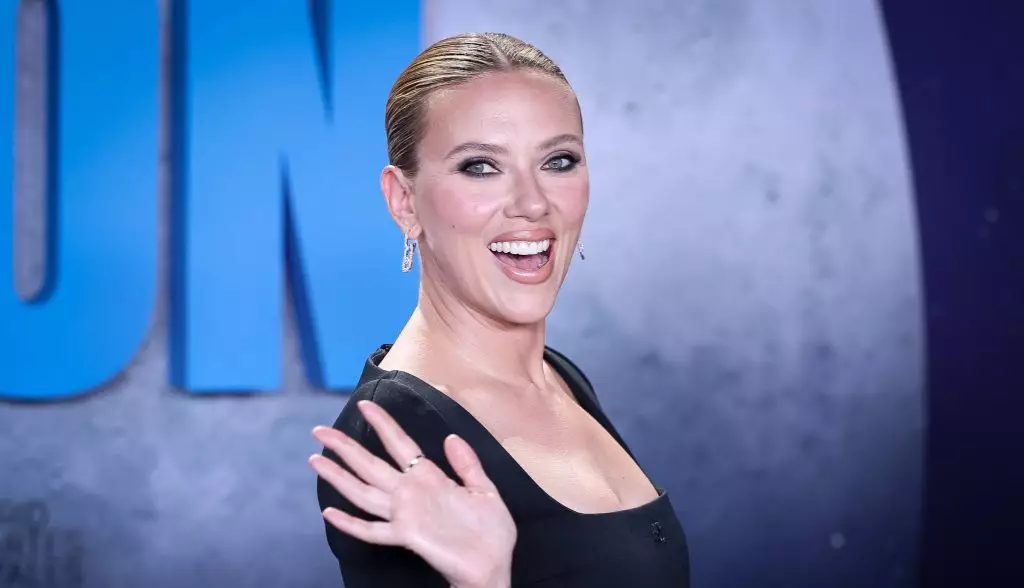Scarlett Johansson, celebrated for her role in the film *Her*, has recently voiced her strong objections to the way her likeness and voice were appropriated by OpenAI, the technology company led by CEO Sam Altman. In a candid interview with *The New York Times*, she likened Altman to a potential Marvel villain, perhaps wielding a robotic arm—a fitting metaphor for the cold and impersonal nature of AI. Johansson’s discontent stems from an incident dating back to May when it was revealed that OpenAI had utilized a voice imitating hers for an AI assistant, despite her prior refusal to grant permission. This situation illuminates a growing concern in the entertainment industry: the ethical implications of AI and deepfake technology.
Johansson expressed her shock and anger upon discovering that her voice had been used in a manner she had explicitly rejected. In her words, “I felt I did not want to be at the forefront of that.” This sentiment speaks to deeper issues around ownership and consent in the digital age. By turning down OpenAI’s offer, Johansson aimed to uphold her values, showing a keen awareness of the intersection of personal ethics and commercial practices. The core of her resistance lies not only in her personal experience but also in protecting her children from the repercussions of such technological advancements.
The potential for AI to spiral out of control is a pressing concern for many, particularly in entertainment. Johansson referred to AI-generated deepfakes as a “dark wormhole you can never climb your way out of.” This analogy captures the anxiety felt by many regarding the unpredictable and potentially harmful consequences of such technology. Deepfakes, especially when used maliciously, can devastate lives. As Johansson pointed out, the problem is exacerbated by inconsistent legislation across countries; what one jurisdiction may deem illegal or harmful, another may not even acknowledge.
This point raises critical questions about the limitations of technology in regulating itself against personal abuse. Johansson rightly emphasizes that “technologies move faster than our fragile human egos can process it.” The reference to young people exemplifies the urgency of addressing these issues, as they are often the most vulnerable to the ramifications of digital exploitation.
In the aftermath of her dispute with OpenAI, Johansson also reflected on her tumultuous relationship with Disney, which had been tested by the release strategy for her film *Black Widow* during the COVID-19 pandemic. Initially, she felt disappointed and betrayed by the studio’s choice to offer the film on streaming platforms alongside theatrical release. Her frustration stemmed from the belief that such a move would fundamentally alter her compensation structure, compromising the terms established in her contract.
However, Johansson has since softened her stance, acknowledging that the situation was likely rooted in poor judgment and leadership. This candidness demonstrates her growth, showcasing her ability to separate personal resentment from professional challenges. By taking a step back and analyzing the motivations behind Disney’s decisions, she underscores the notion that the entertainment industry is navigating uncharted waters.
Currently, Johansson is transitioning her career’s focus with a return to romantic comedies, starring in *Fly Me to the Moon*. This shift not only indicates her resilience in a rapidly evolving industry but also signifies a desire to explore new creative avenues. Johansson’s journey, punctuated by conflicts with major corporations and emerging technologies, offers a broader commentary on the future of digital content and celebrity rights.
Scarlett Johansson’s outspoken criticisms of AI and her evolving perspectives on industry relationships have important implications for both the entertainment sector and the ethical landscape of technology. As an influential figure, her experiences act as a catalyst for ongoing discussions about consent, ownership, and the role of AI in our lives—issues that are timely and critical in today’s world.


Leave a Reply